Former State Bar District Officer Disbarred
“By knowingly and willfully misapplying and converting the $122,241.25 balance of proceeds from the Ruffin loan that she was holding in trust as a fiduciary and by using those funds for her own personal benefit and for the benefit of third persons without authorization from Ruffin or from St. Luke and in violation of the express prohibition of Ruffin and of the closing instructions of St. Luke, defendant used entrusted property for her own personal benefit and for the benefit of third parties without authorization in violation of Rule 1.15-2(j); engaged in criminal conduct, embezzlement, that reflects adversely on her honesty, trustworthiness, or fitness to practice law in violation of Rule 8.4(b); and engaged in conduct involving fraud, deceit, dishonesty, or misrepresentation in violation of Rule 8.4(c) of the Revised Rules of Professional Conduct..“By failing to inform CitiFinancial that she had made a stop payment order on the $122,241.25 trust account check issued to CitiFinancial, defendant engaged in conduct involving fraud, deceit, dishonesty, or misrepresentation in violation of Rule 8.4(c) of the Revised Rules of Professional Conduct.” State Bar v. Smallwood
“By knowingly and willfully misapplying and converting the $4,000.00 and the $29,335.00 disbursed by checks #s 5188 and 5228, which she was holding in trust as a fiduciary for the benefit of Dorothy Harris, and by using those funds for her own personal benefit and for the benefit of third persons without authorization from Dorothy Harris, defendant used entrusted property for her personal benefit and for the benefit of third parties without authorization in violation of Rule 1.15-2(j); engaged in criminal conduct, embezzlement, that reflects adversely on her honesty, trustworthiness, or fitness to practice in violation of Rule 8.4(b); and engaged in conduct involving fraud, deceit, dishonesty, or misrepresentation in violation of Rule 8.4(c) of the Revised Rules of Professional Conduct.”.“By preparing and submitting to the State Bar a ledger card purporting to reflect that check #5228 was written to pay a medical lien when in fact no such lien was paid and when in fact defendant had knowingly and willfully misapplied the $29,335.00, defendant engaged in conduct involving fraud, deceit, dishonesty, or misrepresentation in violation of Rule 8.4(c) of the Revised Rules of Professional Conduct.” State Bar v. Smallwood
“By knowingly and willfully misapplying and converting the $2,454.67 disbursed by check # 5173 that she was holding in trust as a fiduciary for the benefit of the Estate of Clotee Gillam, and by using those funds for her own personal benefit or the benefit of third persons without authorization from the Estate, defendant utilized entrusted funds for her own benefit or for the benefit of third persons without authority in violation of Rule 1.15-2(j); engaged in criminal conduct, embezzlement, that reflects adversely on her honesty, trustworthiness, or fitness to practice law in violation of Rule 8.4(b); and engaged in conduct involving fraud, deceit, dishonesty, or misrepresentation in violation of Rule 8.4(c) of the Revised Rules of Professional Conduct..“By preparing and submitting to Clerk of Superior Court a final accounting falsely representing that check #5173 was issued for "funeral expenses" of the Estate of Clotee Gilliam when defendant actually misappropriated the $2454.67, defendant engaged in conduct involving fraud, deceit, dishonesty, or misrepresentation in violation of Rule 8.4(c) of the Revised Rules of Professional Conduct.” State Bar v. Smallwood
“By failing to reschedule the Swindles' depositions upon advance notice of their conflict, failing to attempt to reschedule the depositions after they were missed but before the case had been dismissed, failing to appear for the hearing on the motion to dismiss, and failing to take appropriate steps to resolve her scheduling conflicts and protect her clients' ability to defend against the motion to dismiss, defendant neglected a client matter in violation of Rule 1.3 of the Revised Rules of Professional Conduct.
“By failing to respond to the Swindles' telephone calls and e-mail on a timely basis, failing to discuss her failures to protect their interests in the deposition matter and in defending the motion to dismiss and failing to tell the Swindles she had failed to appear at the hearing on the motion to dismiss, defendant failed to promptly comply with the clients' reasonable requests for information, failed to keep the clients reasonably informed about the status of the matter, and failed to explain matters to the extent reasonably necessary to permit the clients to make informed decisions regarding the representation in violation of Rule 1.4 of the Revised Rules of Professional Conduct.” State Bar v. Smallwood
“In her response to the Grievance Committee of the State Bar, defendant indicated that she first learned the Swindles could not attend the depositions on July 30, 2003 when her office called the Swindles on July 30, 2003. In her response, defendant stated that her office offered to pick Mrs. Swindle up and bring her to the deposition and that Mrs. Swindle declined. In her response, defendant stated that she attempted to reschedule the Swindles' depositions and offered to pay the costs but opposing counsel would not reschedule. Defendants' statements to the Grievance Committee of the State Bar referenced above were false and were material. Defendant knew when she made the false statements described above that the statements were false. Defendant never corrected the false statements she had made to the Grievance Committee.”…“By falsely stating to the Grievance Committee of the North Carolina State Bar that she had not received advance notice of the Swindles' unavailability for the scheduled deposition date due to work conflict, that her office had offered to transport Mrs. Swindle to the deposition and Mrs. Swindle declined, and that she attempted to reschedule the depositions and offered to pay costs but opposing counsel would not reschedule, defendant knowingly made false statements of material fact in violation of Rule 8.1 and N.C. Gen. Stat. § 84-28(b)(3) and engaged in conduct involving dishonesty, fraud, deceit, or misrepresentation in violation of Rule 8.4(c) of the Revised Rules of Professional Conduct.”…“Defendant's misconduct significantly harmed the legal profession. Defendant's neglect and failure to communicate with the Swindles caused the Swindles to feel their trust had been betrayed. The Swindles expressed a sense of distrust of the legal profession in general due to defendant's misconduct. Additionally, defendant's dishonesty with her fellow attorney, Mr. Ellis, also constitutes harm to the profession. Attorneys have a duty to deal honestly with each other. When attorneys do not do so they engender distrust among fellow lawyers, thereby harming the profession as a whole..“Defendant's false statements to the Grievance Committee of the North Carolina State Bar interfered with the State Bar's ability to regulate attorneys and undermined the privilege of lawyers in this State to remain self-regulating..“Defendant's false statement to the Court in the Swindles' case and her failure to appear for the Swindles without having followed proper procedures for notifying the Court and opposing counsel of conflicting court obligations caused prejudice to the administration of justice.” State Bar v. Smallwood
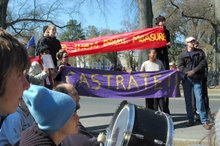




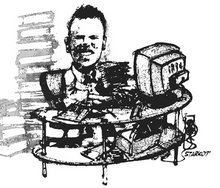
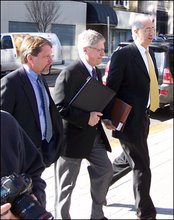
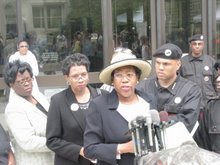
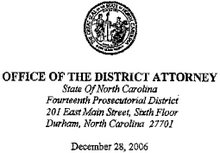
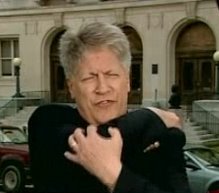





























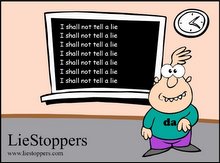






7 comments:
Messing around with clients' trust accounts is just about the worst thing an attorney can do. Nifong didn't steal any money we know of, unless you count the $3million is defense funds he made the 3 families pay.
Now Nifong is paying for an expensive Attoney. Got to love the irony.
Then he gets to lawyers for the lawsuits, and maybe a criminal case.
Nifong definitely had a pecuniary interest in perpetrating the Hoax and riding it to electoral victory - the higher pension his DA win would garner him vs. being promptly fired if Freda Black won. The love of money was the root of Nifong's evil imo.
I agree with 10:12. Any case involving embezzlement of trust account money is simply in a category by itself. Just about every State Bar Journal has examples of lawyers being disbarred over that, whether they misled the courts or the bar or not. For example, I just grabbed the first Journal my hand reached -- fall of 2005. Three lawyers were disbarred for misappropriating client funds. On the other hand, another lawyer was "suspended (not disbarred) for five years... the DHC found that the lawyer neglected several client matters, disobeyed a federal show-cause order, and made misleading statements to several federal judges." p. 55.
Of course, that's all pre-Gell, so maybe they will let the hammer drop...
Put the pot on the flame so the water is boiling for Nifong!
Does anyone know where she went to law school? Recent history has caused me to be interested in this information.
http://www.heraldsun.com/state/6-937904.cfm
Report: Easley press office ordered e-mails deleted
Mar 29, 2008
RALEIGH, N.C. -- State government public information officers were instructed by Gov. Mike Easley's press office to delete e-mails to and from the governor's office, according to notes released Saturday by the governor's office.
The News & Observer of Raleigh reported Saturday that Andrew A. Vanore Jr., a lawyer who works for Easley, produced notes made by two public information officers. The notes showed that they and others were told at a meeting on May 29, 2007, to destroy e-mails. A third public information officer said he also recalled those instructions.
But Vanore said the notes don't mean what they say. He also said the instructions were not followed.
Easley's chief legal counsel, Reuben F. Young, has been vacationing with his family in China and could not be reached for comment. Deputy press secretary Seth Effron has been instructed by Vanore not to comment.
Questions about the way the Easley administration handles e-mails arose after publication of an N&O series, "Mental Disorder: The Failure of Reform." The series reported on an ill-conceived and poorly executed mental health reform plan on which the state has wasted at least $400 million.
Two days after the series ended, Easley ordered the Department of Health and Human Services to fire its public information officer, Debbie Crane. Later that day, Crane told The N&O that the governor's press office had directed that e-mails be deleted to bypass the state's public records law.
Young and Effron quickly denied that such instructions had been given.
Julia Jarema, public information officer at the Department of Crime Control and Public Safety, recorded this note for the meeting in question: "Public records request -- increasing careful of email delete emails to/from gov. office every day."
Diana Kees, public information officer at the Department of Environment and Natural Resources, recorded this note: "emails - more & more public records requests (blogs?) be careful w/emails; delete emails to and from gov office every day."
Vanore said he did not know what the notes meant.
"It could be interpreted a number of different ways, and the only way to properly interpret it would be to talk to the individual who took the note," he said. But he said he had instructed all of the employees not to talk about that issue because the newspaper may file a lawsuit.
Vanore said the e-mail messages to and from the governor's press office were clear and irrefutable proof that there was no systematic intent to destroy e-mail.
Hugh Stevens, an attorney who represents The N&O, said the notes made by Jarema and Kees confirmed Crane's allegation.
"This sounds to me as though there was a concerted and willful attempt to evade the public records law by deleting the e-mails," he said. "I don't see how you can interpret it any other way."
Guess whose e-mails were deleted? OURS! I have had numerous people write to both Easley, and the Sheriff, for our case, and after being "blacklisted" from the county website and willingly negligent, here is more PROOF of the deliberate abuse of powers in public offices to purposely deny the public RIGHTS, and to perform MORE illegal and unconstitutional tactics to prevent being "OUTED!"
WE DEMAND JUSTICE NOW!
Rhonda Fleming
Durham SURVIVOR!
Post a Comment